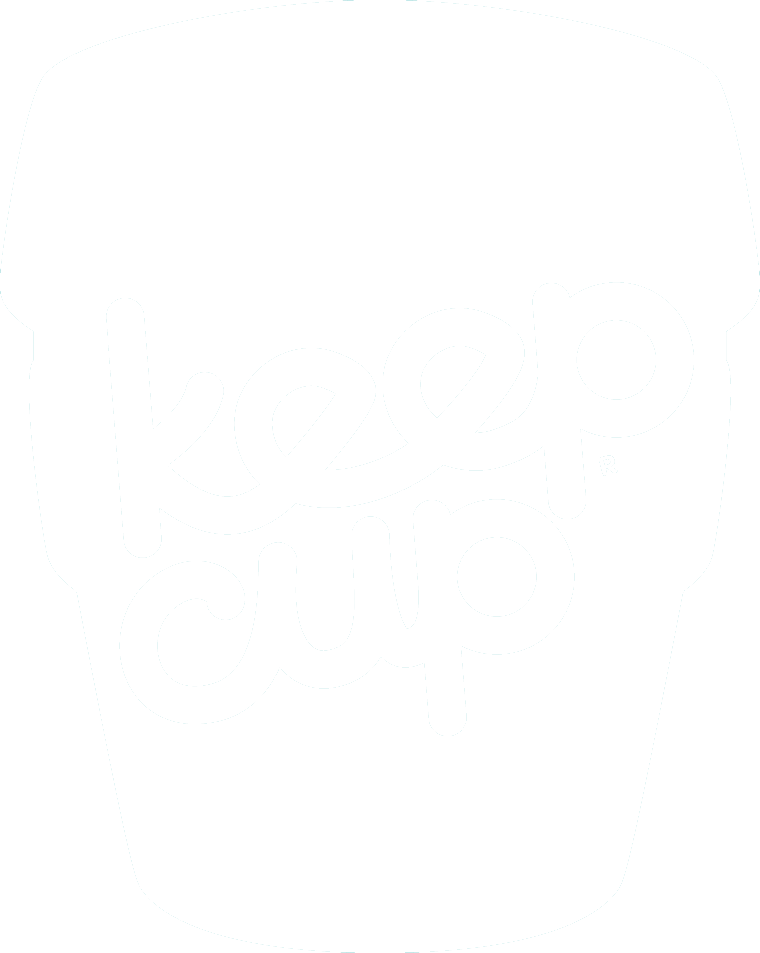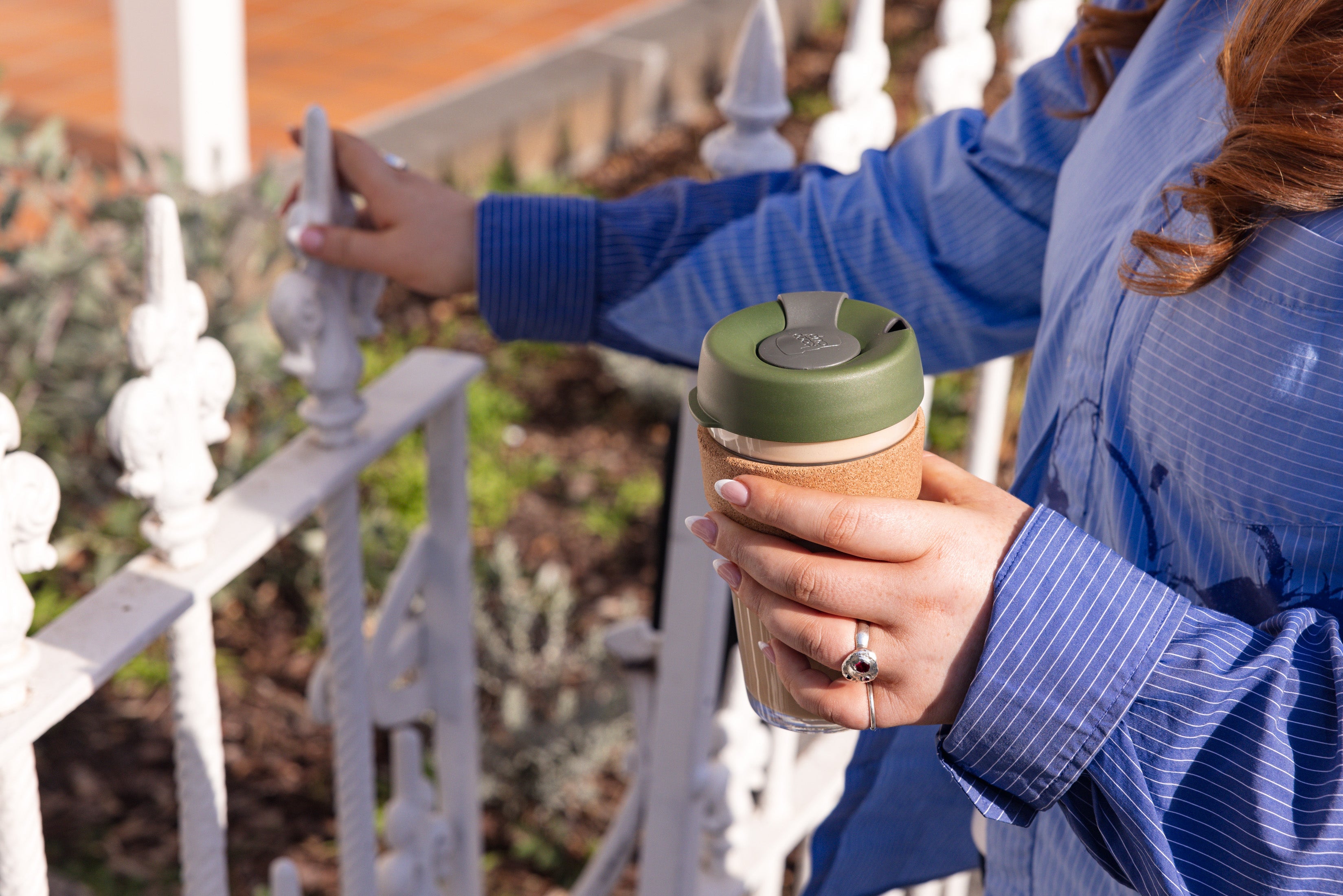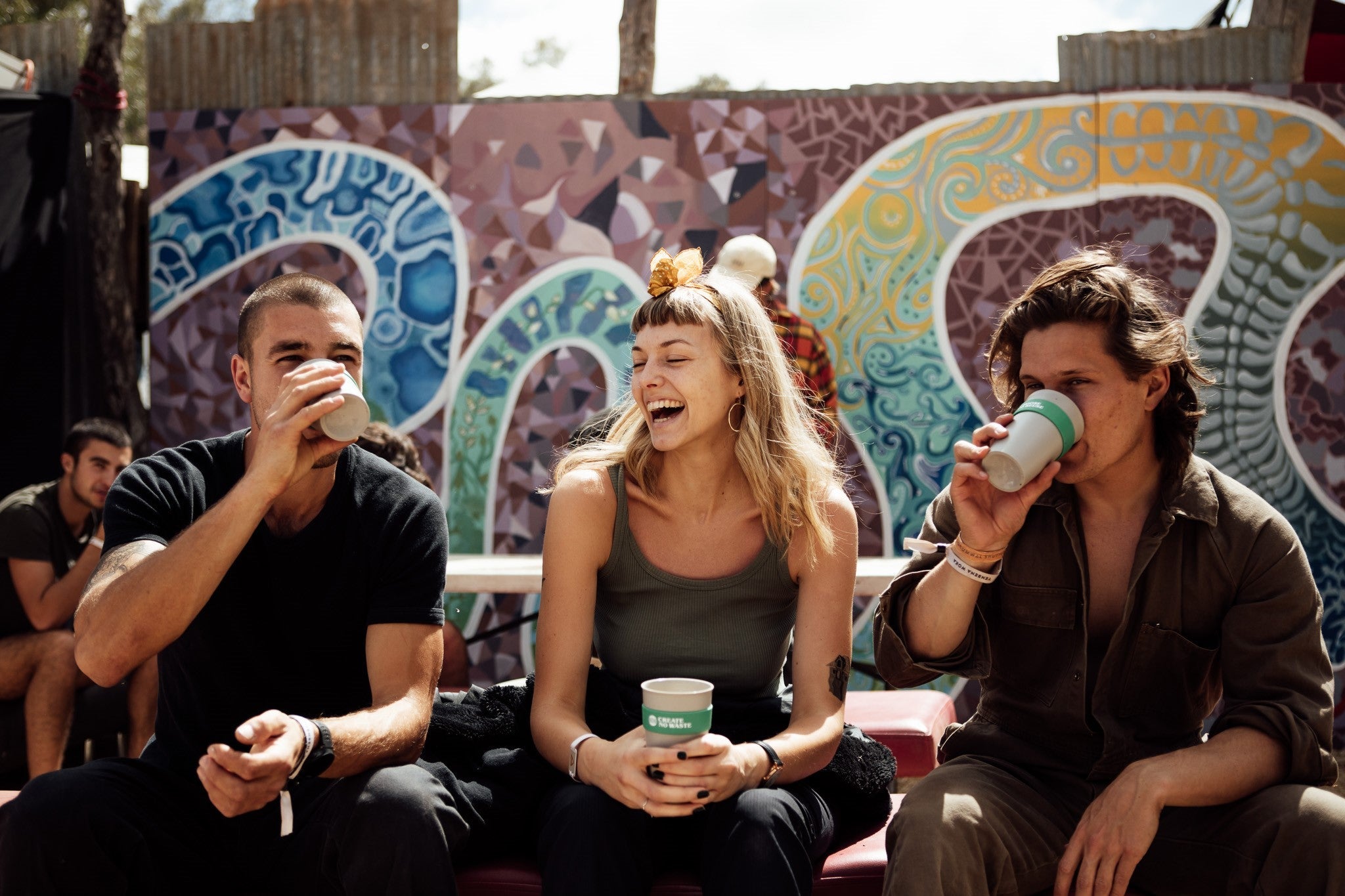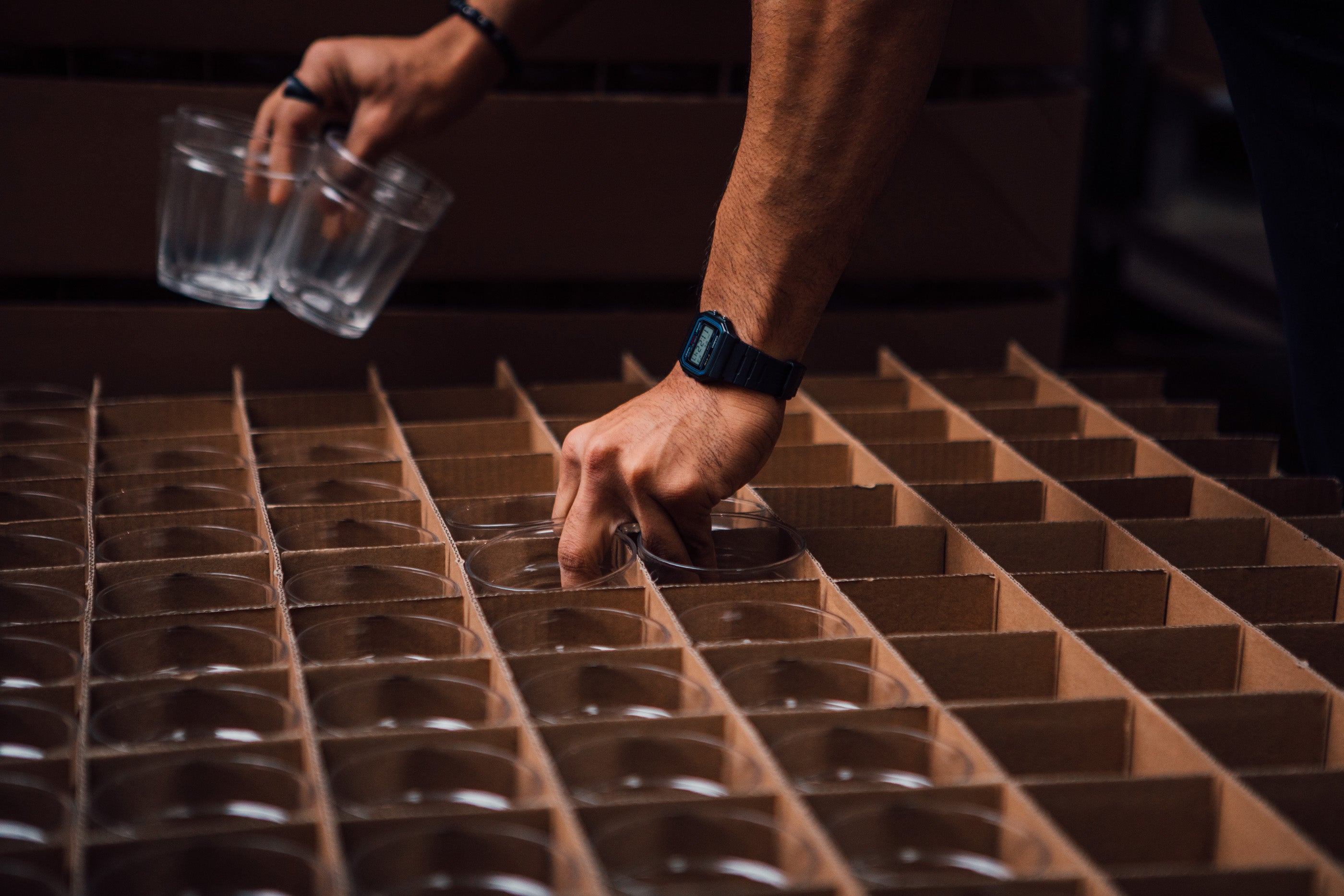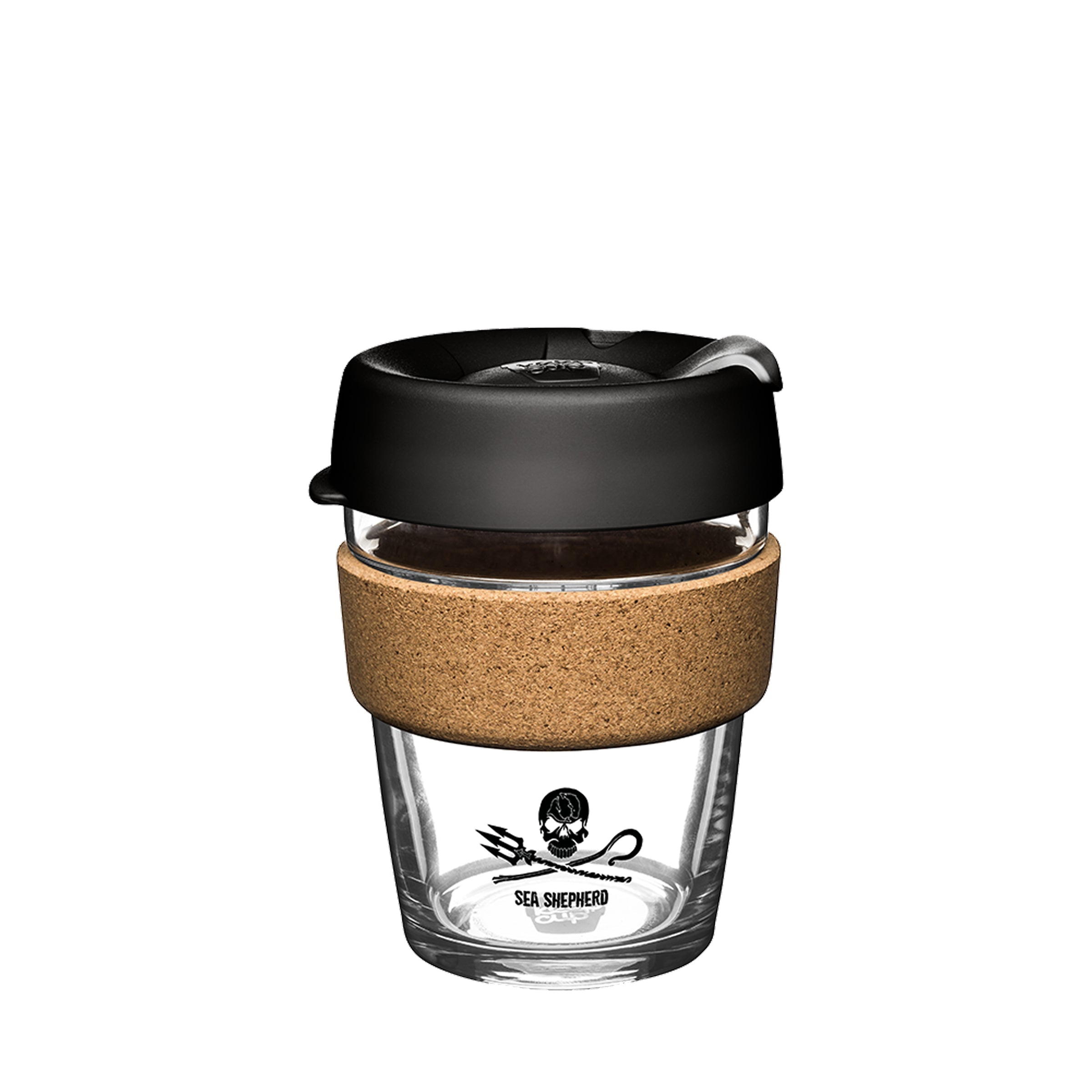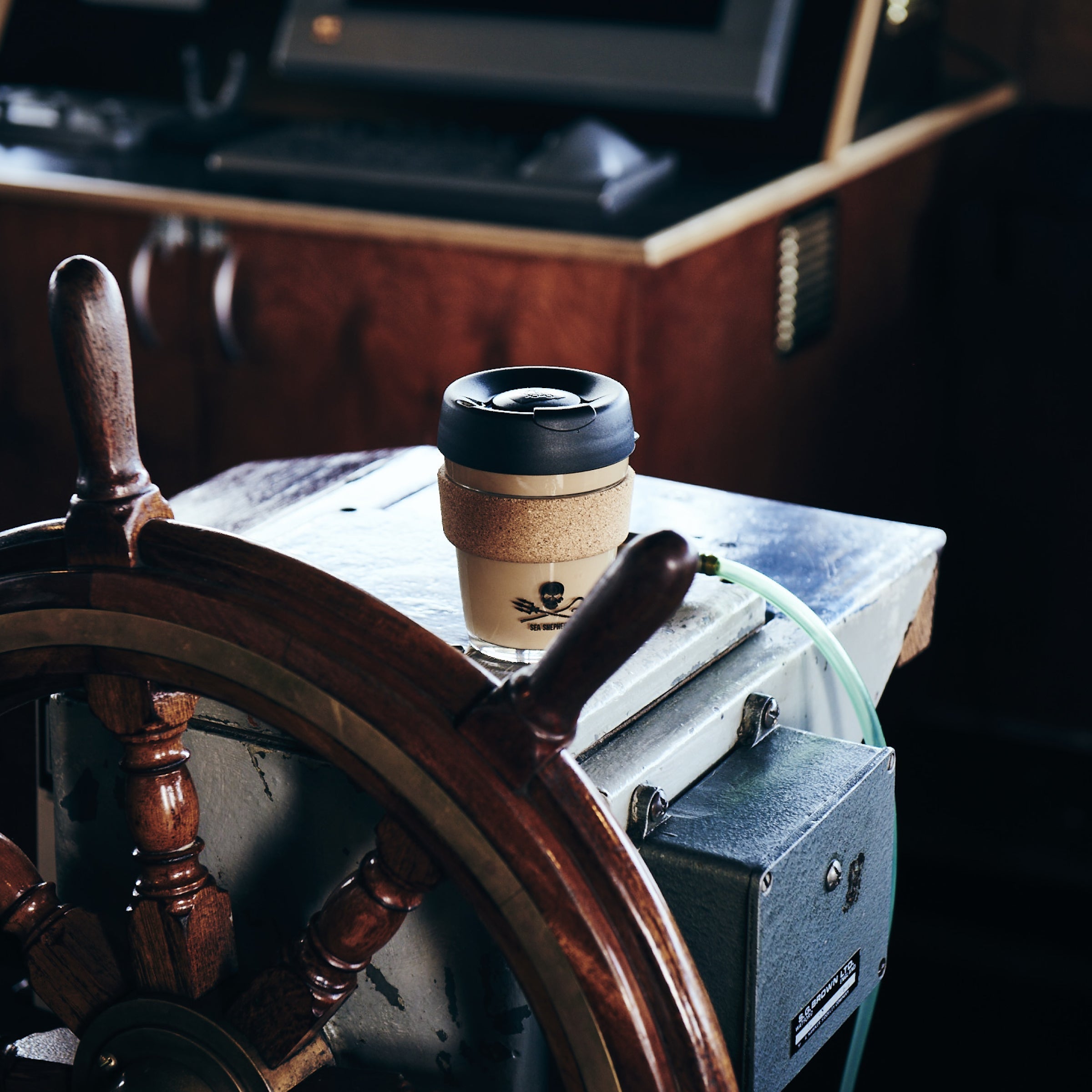Significant positive changes are taking place in offices, communities and on national stages – disposable straws, bottled water, plastic bags and single-use cups are being banned. Ten years in, we are here to finish what we started.
We believe collective individual action is a powerful catalyst for change. Carrying a KeepCup is a signifier of intention of the world we want to live in, so it’s important that we represent those values as an organisation.
We are a certified B Corporation
In 2014 KeepCup became one of Australia’s founding B Corps.
When we started out, customers would ask us, 'are you Fairtrade?', 'are you organic?'. B Corp certifications was a quick and effective way for us to communicate that our commitment to sustainability extended beyond the product. B Corp helps hold us to account and drive best practice in how we value four customers, the team, the community and global environment in which we operate.
So much work on impact is about product quality, removing plastic and double handling from our supply chain, the solar panels on our warehouse roofs, it is work done because its the right thing to do. The B Corp assessment ensures we deep-dive into our business practices every three years to drive measurable improvements – and we’ve been recognised four times (2018, 2019, 2021 and 2022) as B Corp Best for the World Honourees in the Environment category.
Our current B Impact score is 121.8, with the minimum BCorp certification score being 80.
A world without single-use coffee cups
The best reusable is the one you use.
We continue to design, engineer and manufacture the best products with a rigorous focus on being fit for purpose, quality and enjoyment. Despite this, in the face of hyper consumption and the climate emergency, they are no substitute for a reusable product you already have.
Buy once. Buy well.
Reuse. Repair.
We believe in the power of cultural influence, not with a top down style maker approach, but a belief that the everyday choices we make shape the future. As sales of reusables soar, our focus is on impact more than ever. We measure our success in use and reuse, and increasingly in how workplaces, events and cities are going disposable free.
We’ve helped LinkedIn Dublin go single-use free, supported the Australian Open to drive reuse across their broadcasting and media centres, worked with the Bank of England to shift reuse rates from 10 to 80 percent amongst their 4,000 staff, diverted over 118,000 single-use cups from landfill with the University of Leeds and worked with Strawberry Fields to establish a reuse program for their 9,000 festival goers. Discover more on the KeepUP blog.
Calculate your Impact
Our Impact Calculator enables individuals and companies to forecast and track their impact, including the energy, carbon and waste savings made by switching to reuse.
Not business as usual
KeepCup is built upon the approach that we want every effort towards a carbon neutral planet to be supported. Being inclusive has been key to our success and the widespread use of our products, but so have our values.
We do not work for profit alone, we work for outcomes and in line with our values. No one comes to the impact conversation with clean hands, but we align our decision making, particularly around partnerships with the United Nations’ Sustainable Development Goals.
We see this as a part of our responsibility to the environment and the community, and we look forward to the day that this type of commitment is a part of ‘business as usual.’
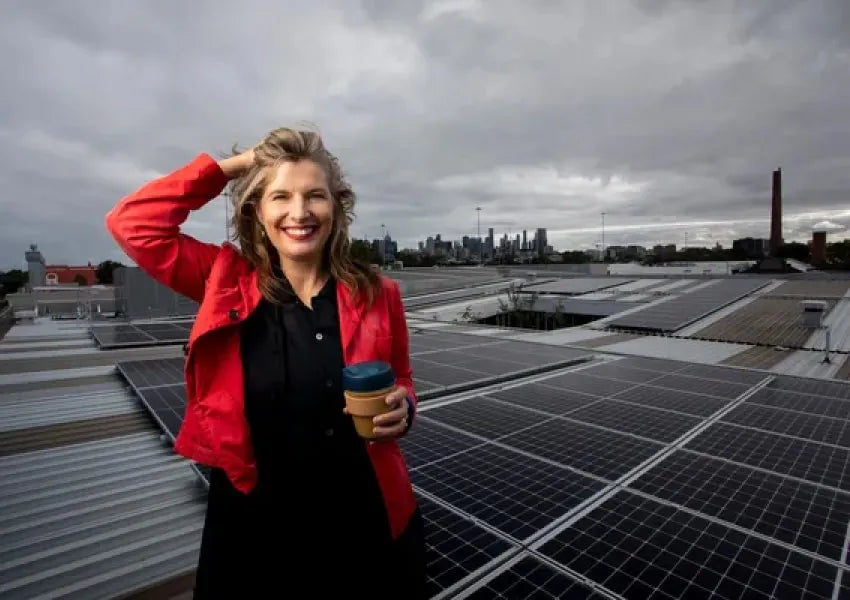
Clean energy and climate action
- Product designed to eradicate single-use waste
- Reducing carbon and impact through our business
- Solar powered Australian and UK hubs
- Associate sponsor of Planet Ark Circular Economy Hub
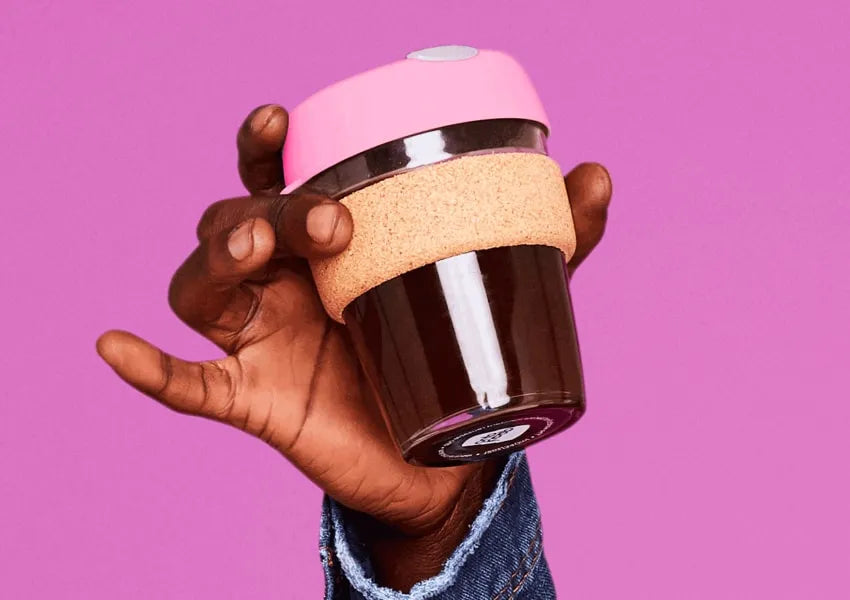
Gender and equality
- Leadership team > 50% female
- Equal pay across gender
- Certified living wage employer
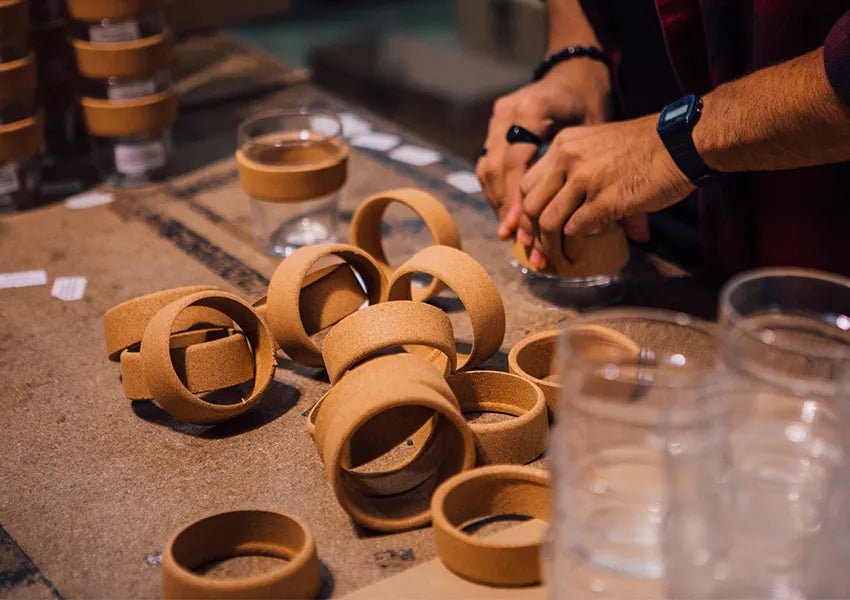
Responsible consumption and production
- Sell through on all stock and product
- Campaign to support behaviour change around product using our impact calculator tool
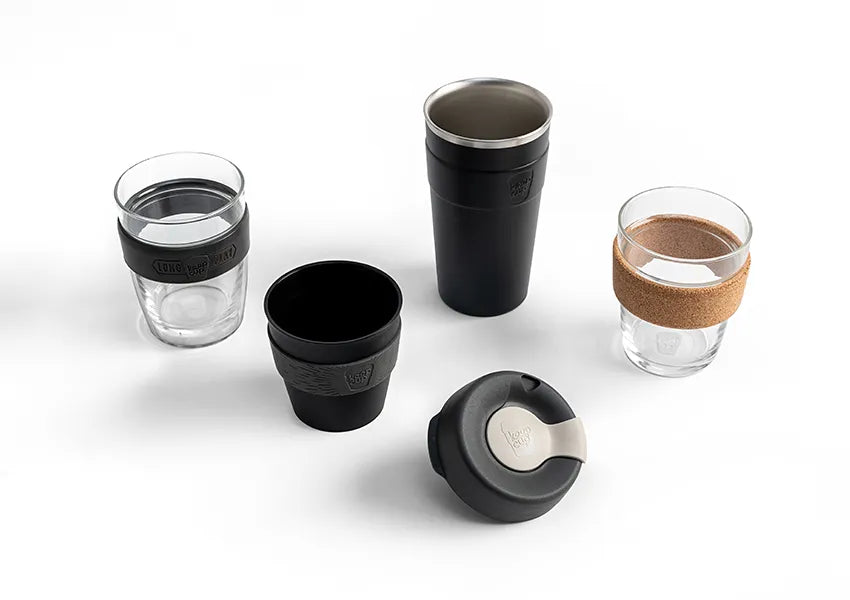
Sustainable communities and innovation
- Sustainability begins with design
- Our mission to encourage reduce and reuse
- Local manufacturing and assembly
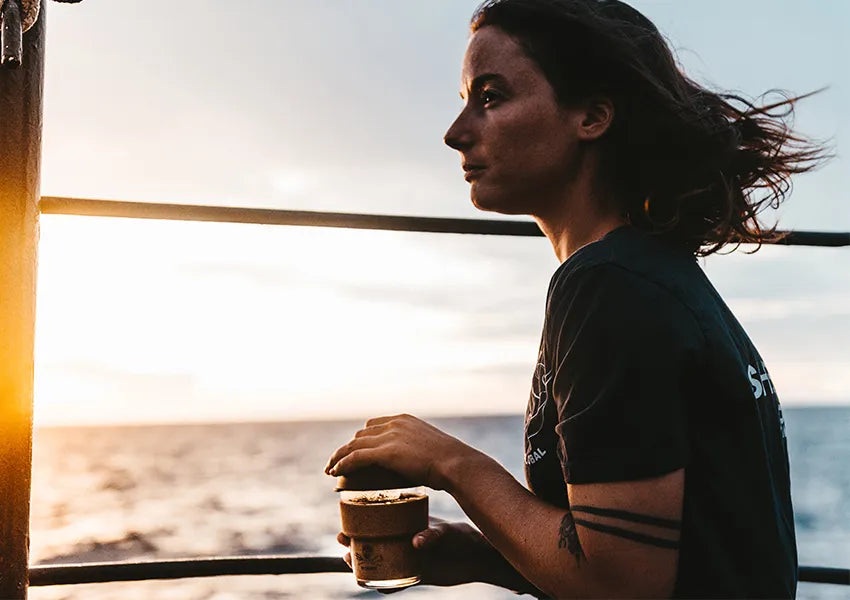
Sustainable food, land, water, oceans
- Support of the circular economy and its impact on supply chain
- Partnership with Sea Shepherd, Bob Brown Foundation and WIRES Wildlife Rescue
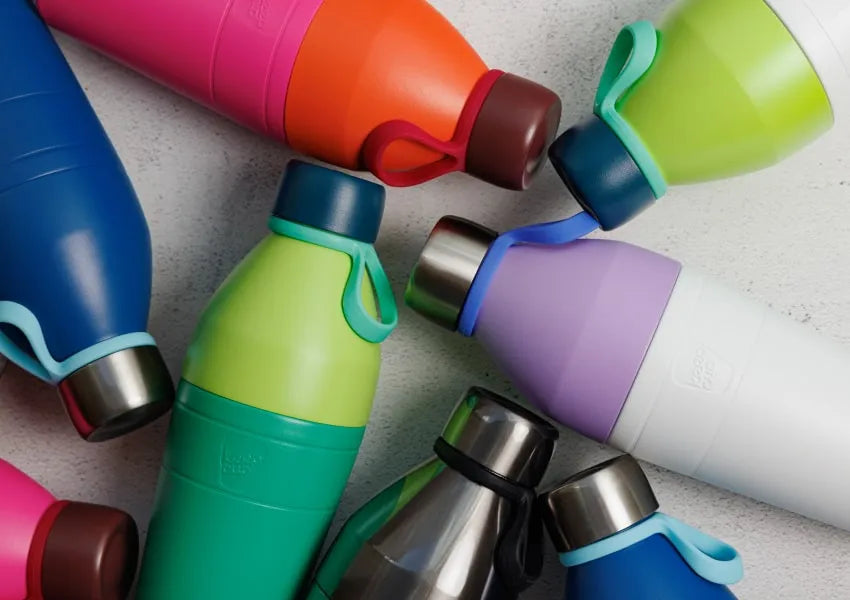
Designed for repair
Our products are designed with modularity in mind. KeepCups have as few parts as possible, and the use of common parts across multiple products means lost or damaged components can easily be replaced – so our customers can replace a part, not the product – reducing our products’ overall impact.
Life Cycle Analysis informs our decisions
We work with sustainability consultants Edge Environment to assess the environmental footprint of our products against single-use and multi-use alternatives of various materials.
KeepCups have a lower carbon footprint than disposable and reusable alternatives.
After 66 uses KeepCup Thermal has a lower impact than disposable cups, and after 24 uses for our other products.
This is based on drinking one coffee each weekday over eight years for KeepCup Thermal and one coffee each weekday over four years for Original and Brew.
Importantly, the Life Cycle Analysis identified hot spots in our supply chain, the importance of efficient wash practice in extending product life while lowering the footprint of a KeepCup, and helped us dispel some of the greenwash around materials and end of life solutions.
Rethinking the status quo
Products manufactured in China are often delivered in individual plastic bags. Our stainless steel and glass products are no exception - but rather than accepting this delivery method, we worked with our manufacturers in China to deliver low impact packaging made from 100% cardboard. The new solution is quicker to pack, has removed the need for individual soft plastic sleeves and reduced the total packaging material used.
We reuse cardboard from pallet packaging as space filler, to protect KeepCup products in transit to customers as well as for delivery of unboxed product for bulk customer orders such as corporate gifting, events and tradeshows.
In 2019 we joined the Australian Packaging Covenant Organisation (APCO), to be a voice for reuse in recommendations to government regarding packaging transformation. Customers want and need reusable options and solutions beyond recycling.
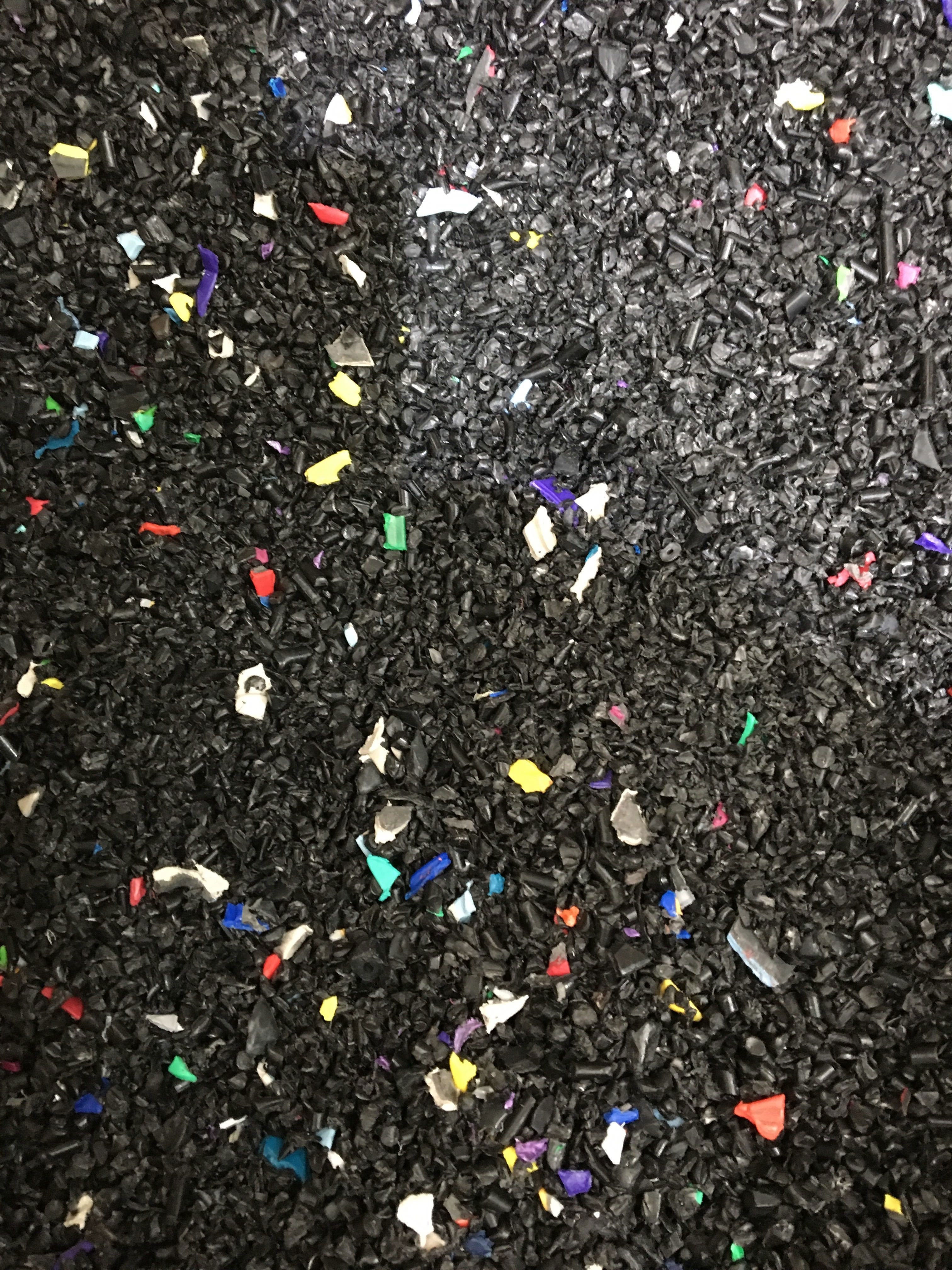
Plastic
All waste from our warehouse assembly and customer returns is collected for commercial recycling. Local recycling is intrinsically connected to local manufacturing, it’s about having material consistency and a viable supply of plastic. However, this is complicated by the low cost of virgin plastic that makes recycling a loss-leading activity for many manufacturers.
It takes infrastructure, knowledge, tooling modifications and skills to reprocess old material into new product, highlighting the importance of local manufacture in the move to a circular economy.
In the UK, broken or faulty plastic KeepCup parts are taken to a local processor where they’re pelletised and remoulded into kerbside recycling boxes.
In Australia plastic KeepCup parts are returned to our manufacturer to be remade into industrial parts.
We currently collect and store our silicone bands while we look for a local commercial recycling solution. It has proven difficult to recycle our low volume of silicone given the prevalence of other rubber-like material (such as tyres) which commercial recyclers have access to.
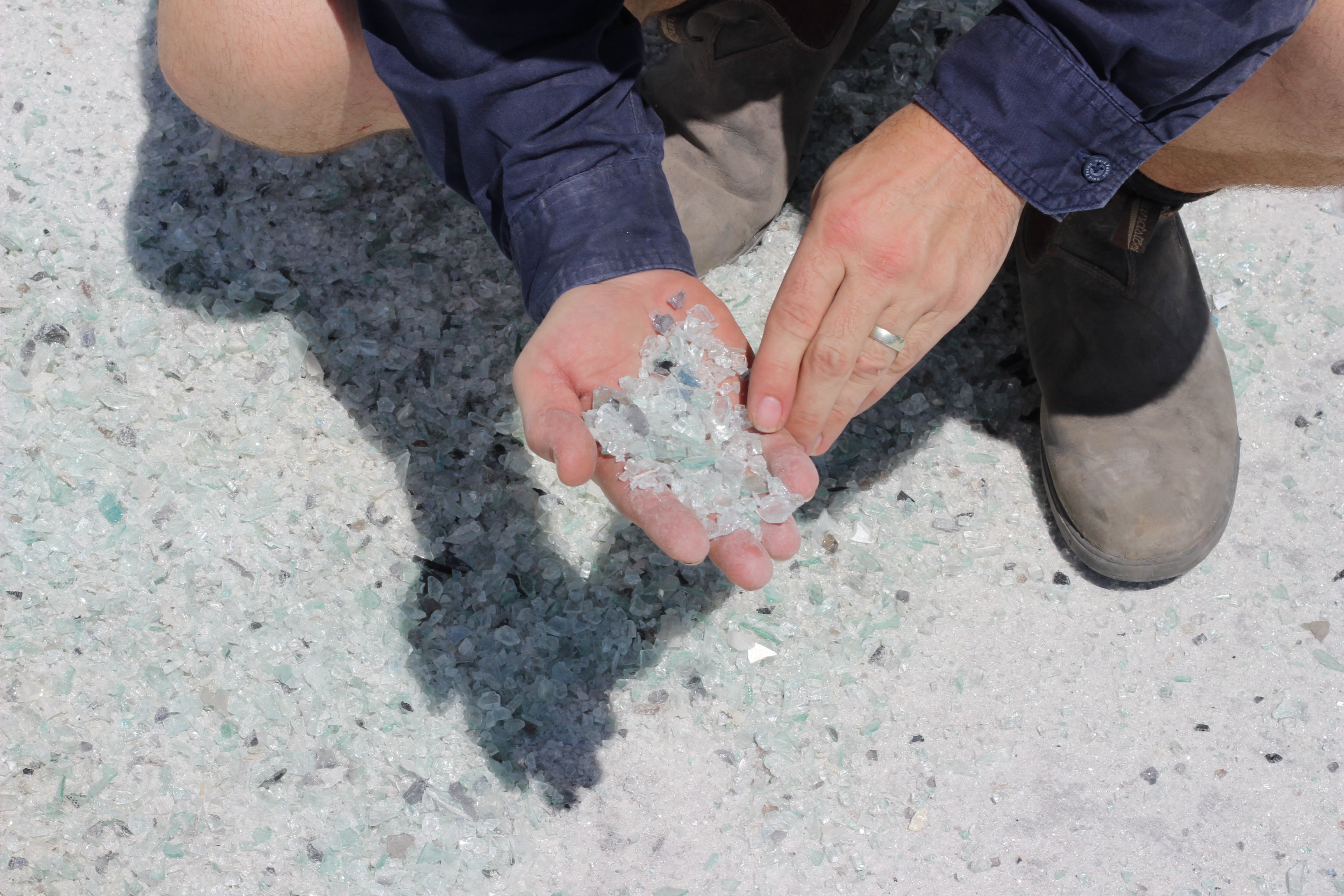
Glass
Our faulty glass is ground down and recycled locally into either bottles, glasswool insulation or used to replace sand in road base. Recycling into road base is polarising, as it locks material into a product from which it can’t readily be extracted and recycled again. However, in road base, the glass that may otherwise end up in landfill, replaces sand which is a finite resource, so we view this as a win until local infrastructure and manufacturing can support low volumes of recycled glass being used in new products.
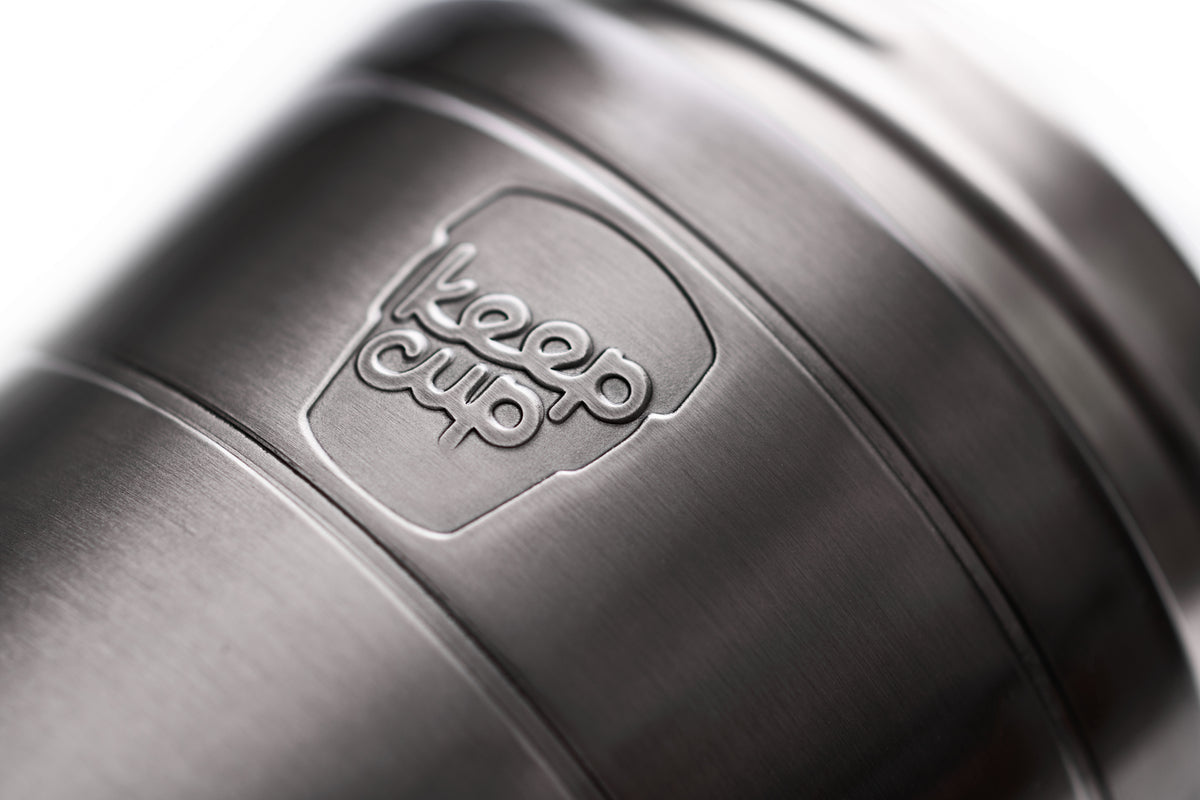
Stainless Steel
Customer returns and reject parts from our warehouses are sent to local commercial recyclers. In Australia, it is collected with other metal materials and shipped to Germany for reprocessing, where it is then sold on to production mills.
Mixing scrap metal with raw materials is standard practice in stainless steel production, which globally contains an average of 25% recycled content, due to the material’s long life and high demand. KeepCup Thermal products are made from 35% recycled stainless steel.
In the UK, broken or faulty plastic KeepCup parts are taken to a local processor where they’re pelletised and remoulded into kerbside recycling boxes.
In Australia plastic KeepCup parts are returned to our manufacturer to be remade into industrial parts.
We currently collect and store our silicone bands while we look for a local commercial recycling solution. It has proven difficult to recycle our low volume of silicone given the prevalence of other rubber-like material (such as tyres) which commercial recyclers have access to.
Committed to reducing carbon and impact
As a global business, transport of our products is a key area of focus, which is why we choose local manufacture for local markets, where volumes and production capacity allow. 41.5% of our supplier spend is on suppliers within 80km of our hubs. See more about our manufacture and assembly.
We choose sea shipping over air freight and work with each of our suppliers to minimise impact in all possible areas. We also encourage our team to have virtual meetings and make cycling an accessible commute option to and from work with secure bike parking and showers.
And when it comes to our buildings, we adopt energy-saving measures including LEDs, sensor lights and energy efficient appliances as the baseline, making the extra effort to minimise our impact.
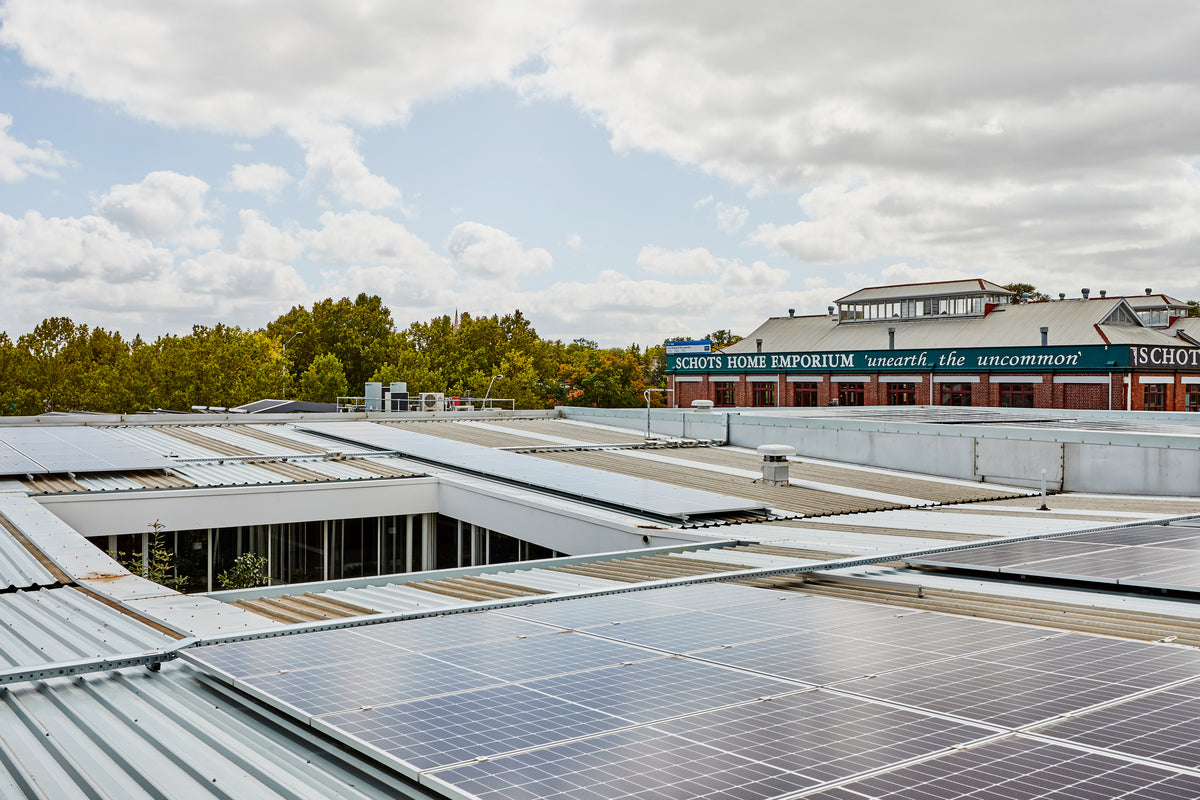
Solar Powered
Our offices have been solar powered since 2015 in Australia, and 2018 in the UK.
In 2019 we installed 76 KW of solar power on our roof in our new Australian offices. We use eleXsys -electricity export system, Planet Ark Power's technology, to export excess power back into the grid.
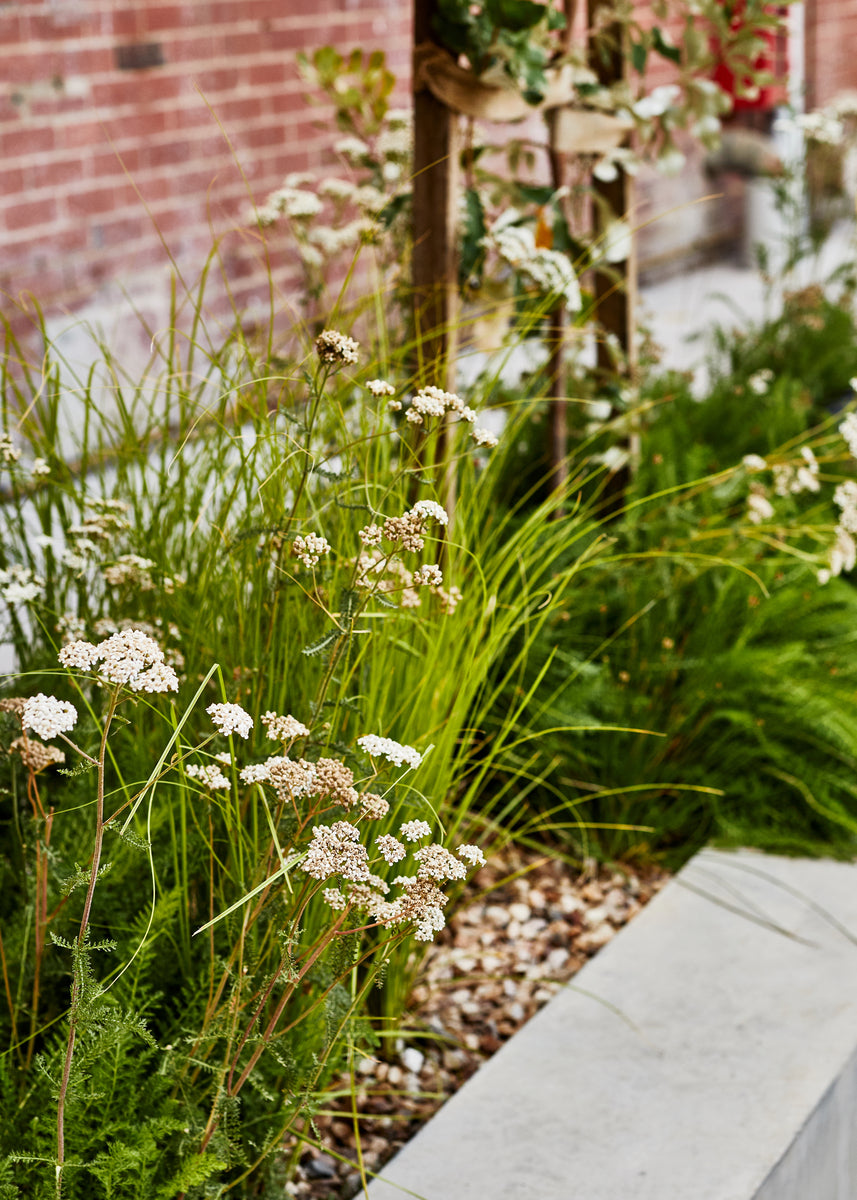
Water
Our UK and Australian buildings harvest rainwater to flush toilets and water gardens.
In Australia some clever friends also lifted the concrete slab and turned it into furniture, providing permeable earth and a robust outdoor area.
Giving and advocacy
It’s a strange world we live in that commercial activity, giving and advocacy are often separated into distinct and mutually exclusive activities.
Giving is a form of advocacy in that it delivers or seeks to deliver an outcome, consistent with what we stand for everyday as an organisation. Our giving program sits with a framework of doing business better - being responsible for the upstream and downstream consequences of corporate activity, paying tax and actively shaping a better future for people and nature.
Thank you for the support and custom that has allowed us to get to this amazing place of privilege and responsibility. We want to continue to do right by the support of those that got us here.
We’ve had lots of great partnerships over the years, and have donated over $2,000,000 to causes and campaigns that advocate against single-use, for a biodiverse planet. These include:
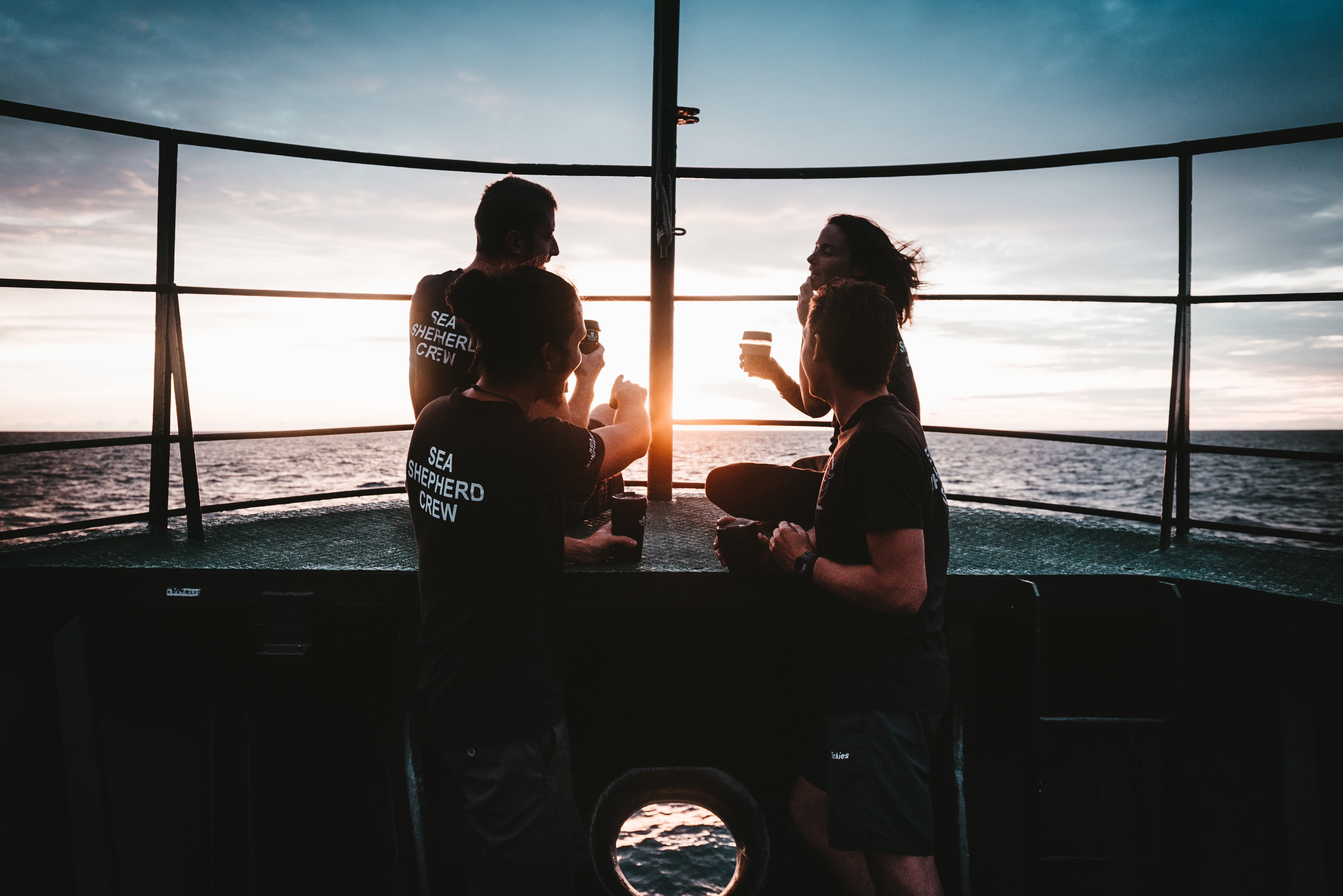
Sea shepherd
Meaningful and proactive collaborations between NGOs and business, such as that between KeepCup and Sea Shepherd, fuel innovation and help educate consumer behaviour. Through joining forces to reach a wider audience, our message on plastics is amplified and made more impactful.
Jeff Hansen
Managing Director of Sea Shepherd Australia and a Director of Sea Shepherd Global
Sea Shepherd is an international non-profit marine conservation organisation. Since 1977 they’ve been fighting to defend, conserve and protect our oceans. From stopping illegal fishing to cleaning up marine debris, Sea Shepherd is on the front line of ocean conservation.
In 2016, we partnered with Sea Shepherd to create our range of licensed products, with 40% of revenue* from every Sea Shepherd KeepCup donated directly. We've raised over $250,000 for Sea Shepherd, supporting their Marine Debris Campaign, clean-ups run by local communities, as well as the Sea Shepherd crew.
Together with our customers, we’ve helped enable over 800 cleanups and the removal of 5 million pieces of waste from our rivers, oceans and coastlines, with our KeepCup team directly involved as part of our volunteering program.
*From June 1, 2022, the donation value has been updated to 30% of revenue from every Sea Shepherd KeepCup sold.
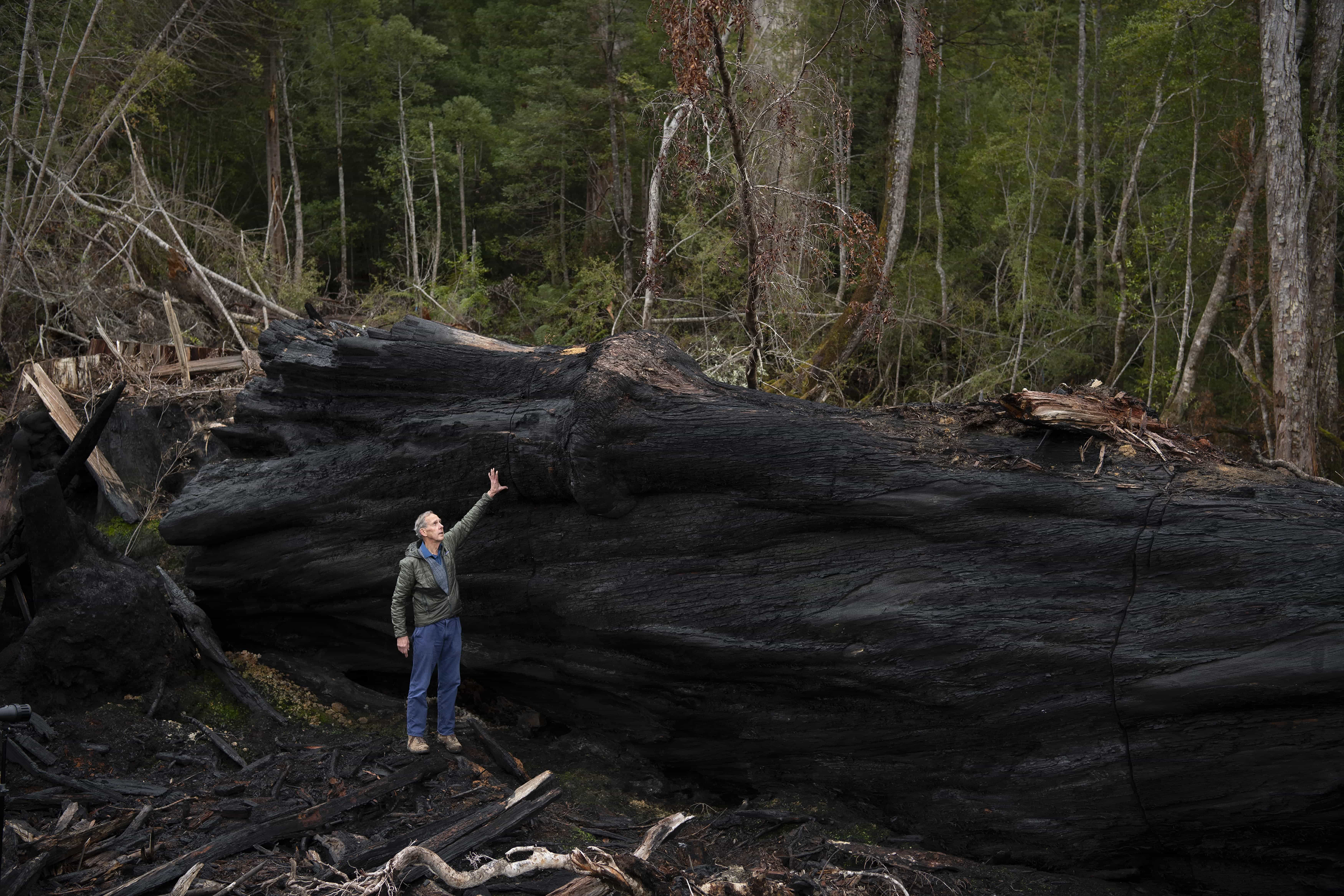
Bob Brown Foundation
KeepCup’s very significant donation to help with our strong Federal Court case for ending this logging is the counterbalancing and inspiring good news to the forest destruction bad news. It signals to environmental campaigners that the ethics of Earth care are alive in business and that we are not alone in wanting to pass on to future generations Australia’s cornucopia of wildlife. KeepCup are true friends of the Earth.
Bob Brown
We consider how we might contribute to carbon positive activities. It seems counterintuitive to commit to tree planting and restoration when land clearing continues at a rate that makes biodiversity collapse imminent.
Only 17% of Australia remains native forest, and the Federal government has disempowered forestry laws under Regional Forest Agreements (RFAs) - 20-year-old agreements which essentially exempt logging from national environment laws. Under these RFAs there are approximately 6 million hectares of Australia’s native forests that are available for logging. This includes old growth and rainforests and threatened species habitat.
The Great Forest Case, a project by the Bob Brown Foundation, is an ongoing legal challenge to the regulation of native forest logging and the legality of the RFAs, which don’t protect threatened species.
In Tasmania alone, over a million hectares of forest are under threat, including Australia’s largest temperate rainforest and home to species such as the Tasmanian Devil, the Masked Owl and the critically endangered Swift Parrot.
The future of forest products and industry lies in already established plantations. Almost 90% of the wood produced in Australia comes from these plantations, which support the vast majority of timber industry jobs. There is no excuse to continue logging the vast tracts of carbon and wildlife storehouses that are Australia’s native forests.
If the Great Forest Case is successful, and culminates in a ban on native forest logging in Tasmania, it will add to a strong history of environmental groups in Australia winning court cases that challenge the RFAs that fail to protect our native forests. Bob Brown won the right for a peaceful protest at the Tasmanian High Court in 2017, both the Wielangta case in Tasmania and the Leadbeater’s Possum case in Victoria have been successful in 2005 and 2020 respectively.
The Great Forest Case represents an opportunity to end the logging of Australia’s dwindling native forests - now and for all time.
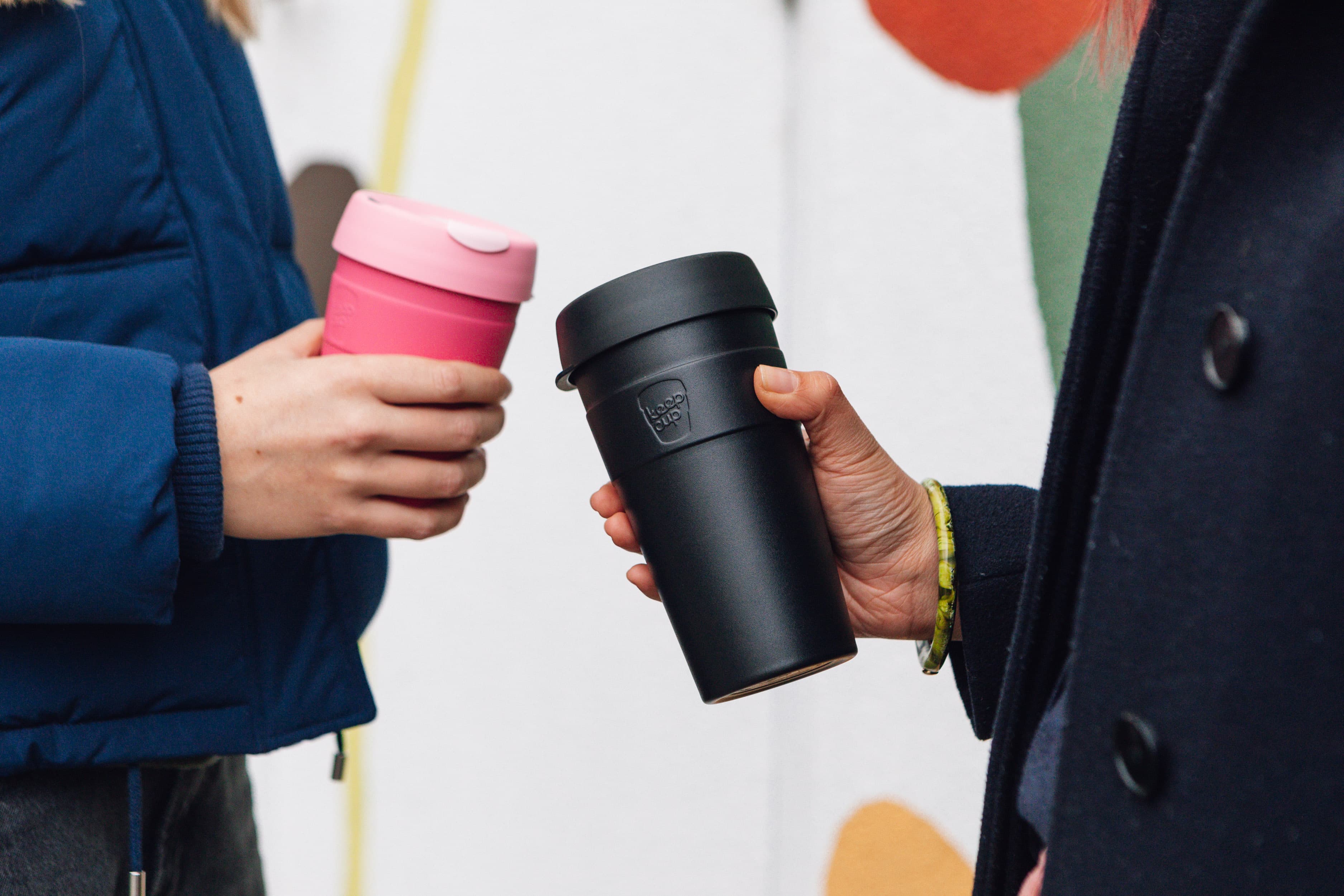
Plastic Free Foundation
We were delighted that KeepCup joined us as an inaugural partner for Plastic Free July 2019. It was important to us to align with a company that shared our vision of a world without plastic waste and was focused on doing this at the source and ‘turning off the tap’. Through the support of this partnership we were able to grow the Plastic Free July challenge to engage 250 million participants around the world and support them in practical ways to reduce single-use plastic. As a BCorp company and 1% for the Planet member working with a company that was a ‘good business’ as well as doing business for good was important to us.
Rebecca Prince-Ruiz
Founder and Executive Director, Plastic Free Foundation
In 2019 we partnered with the Plastic Free Foundation, the organisation behind Plastic Free July, to help shape a world free from unnecessary single-use plastic.
Over 250 million people globally take part in the challenge, avoiding more than 825 million kg of plastic waste, including millions of single-use coffee cups, straws, bags and more. But the campaign isn’t just about a single month. It’s the conversations it sparks and the long-term action it leads. Plastic Free July participants are 16% more likely to reduce waste long term than those who haven’t participated in the campaign.
Although our offices are free from most single-use items, the July challenge spurred us to go further, getting boxes of fruit for the office to shift snacking away from packaged treats, and milk in returnable glass bottles. Plastic Free July brought our teams together for communal lunches and sparked great conversations with customers, suppliers, and in our homes, about the challenges and opportunities of living single-use free.
In Los Angeles our US team also co-hosted a Plastic Free July event at LARABA (the Los Angeles River Artists and Business Association) featuring panellists from KeepCup, the Plastic Pollution Coalition and Plastic Free Foundation.
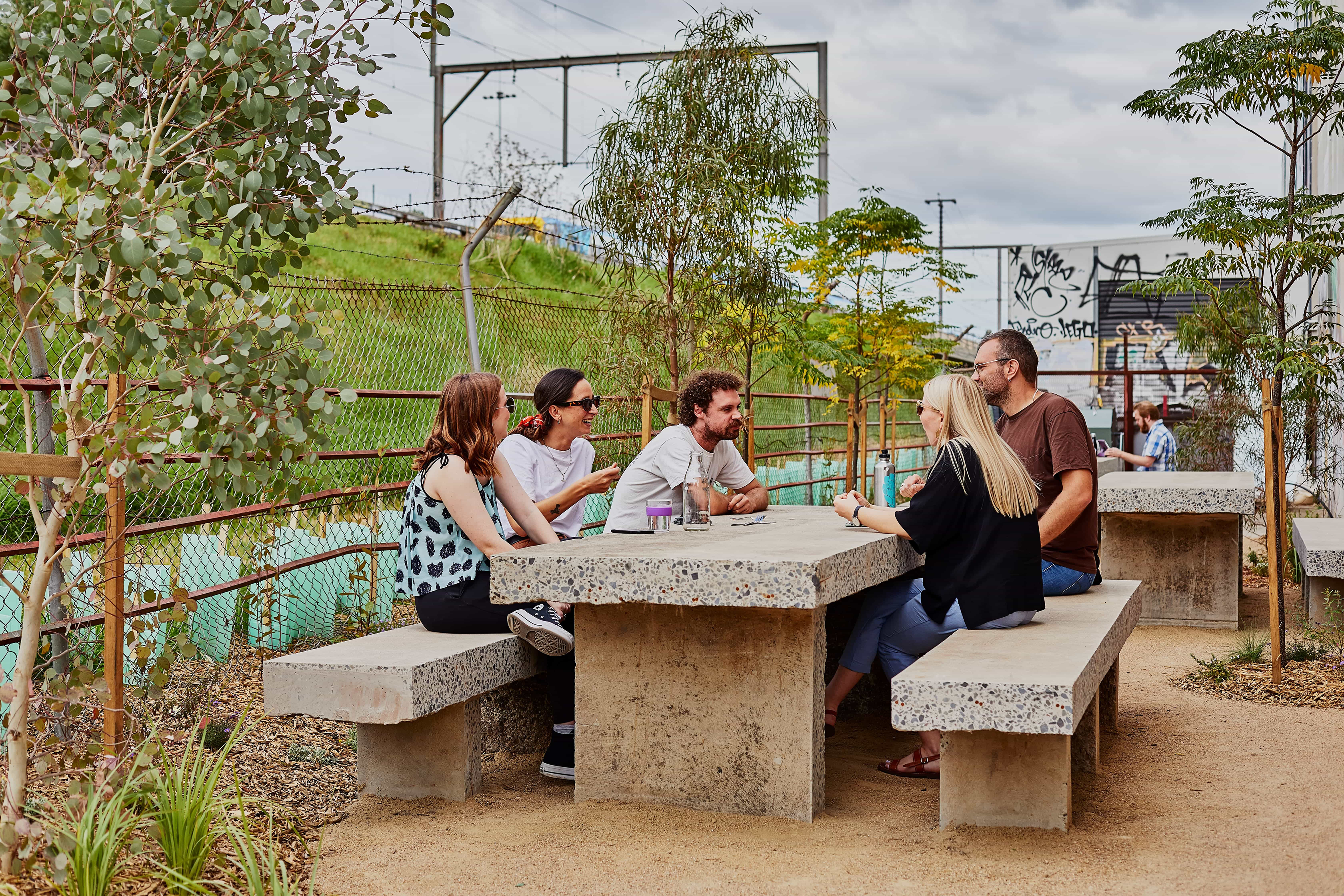
1% for the Planet
In 2019 we became a member of 1% For The Planet and committed to donating at least 1% of our global revenue to environmental causes. Our pledge to provide 1% of revenue, in cash and in kind, sits within our broader commitment to do business better.
In becoming members of 1% for the Planet we’ve joined a global movement of businesses - over 2,000 organisations in more than 45 countries - committed to donating revenue, not just ‘profit’, to deliver good environmental outcomes.
1% for the Planet screens and ratifies the environmental organisations we support, providing a third-party tick of approval that confirms we’ve put our money where our mouth is.
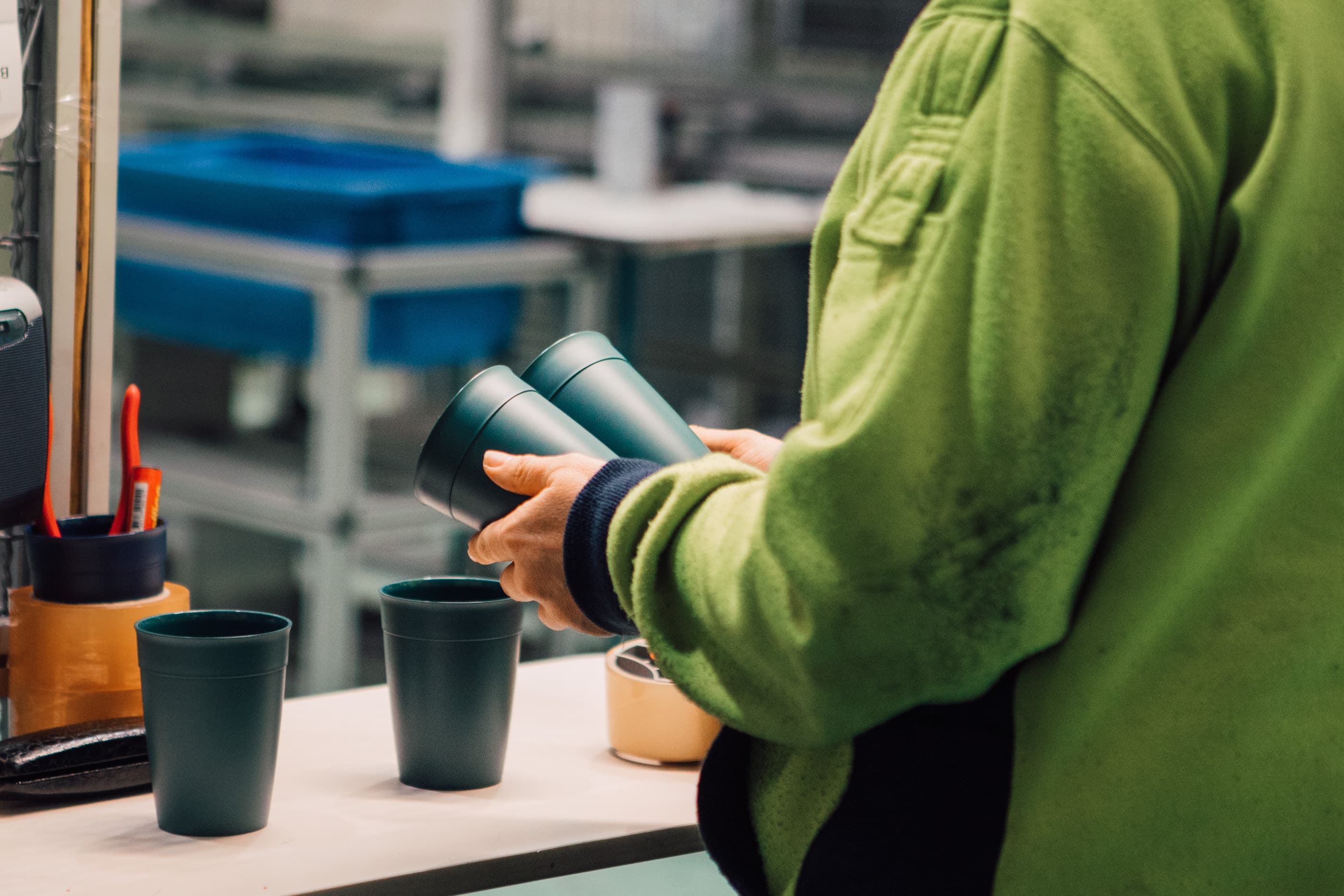
Planet Ark Circular Economy Hub
KeepCup is a globally recognised leader in the design and delivery of circular business models. Its early financial and moral commitment to the Australian Circular Economy Hub lends credibility and much welcomed industry support to what will be Australia's primary resource for businesses and industries to fast track their transition to a circular economy.
The Australian Circular Economy Hub exists because our current linear business models are failing. In order to expedite Australia’s transition to a circular economy, it is imperative that all elements of Australian society collaborate to reach our common goal – the KeepCup and Planet Ark relationship is a strong demonstration of that. We thank KeepCup for their courage and leadership and look forward to co-creating a future where all people live in balance with nature.
Steve Morriss
Head of Circular Economy Development, Planet Ark
We’re the founding business partner of the Planet Ark Australian Circular Economy Hub. Launched in November 2020, the Australian Circular Economy Hub drives education, advocacy and partnerships in striving for a circular economy in Australia.
We will use this partnership to champion uptake of circular practices and highlight the importance of reduction, reuse and repair in circular thinking, in particular, that recycling should be the last resort, not the first.
